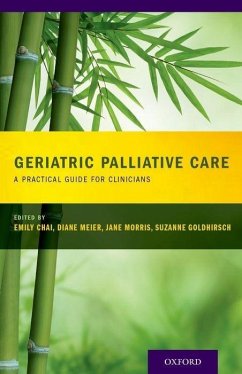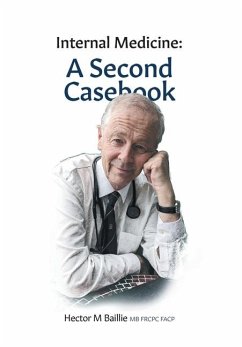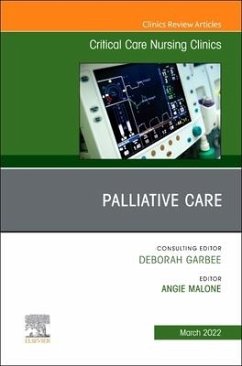
Internal Medicine Issues in Palliative Cancer Care

PAYBACK Punkte
38 °P sammeln!
Patients with advanced cancer may develop a number of clinical complications related to tumor progression or a variety of aggressive treatments. The majority of these patients are elderly, often with multiple co-morbidities that require appropriate assessment and management. In the palliative stage of their disease, patients undergo a progressive transition from active acute care to community-based hospice care. This transition requires modification in the diagnostic tests, monitoring procedures and pharmacological treatments to adjust them to the palliative and short-term nature of the care. ...
Patients with advanced cancer may develop a number of clinical complications related to tumor progression or a variety of aggressive treatments. The majority of these patients are elderly, often with multiple co-morbidities that require appropriate assessment and management. In the palliative stage of their disease, patients undergo a progressive transition from active acute care to community-based hospice care. This transition requires modification in the diagnostic tests, monitoring procedures and pharmacological treatments to adjust them to the palliative and short-term nature of the care. Internal Medicine Issues in Palliative Cancer Care looks at internal medicine through a prognosis-based framework and provides a practical approach to maximizing comfort and quality of life while minimizing aggressive investigations and therapies for patients with life-limiting disease. Forty-six common internal medicine conditions are organized into nine clinical categories: pulmonary, cardiovascular, nephrologic and metabolic, gastrointestinal, hematologic, infectious, endocrine, rheumatologic, and neuro-psychiatric. This evidence-based resource is ideal for educating clinicians delivering palliative care to cancer patients in acute care facilities about complex internal medicine problems, decision-making regarding diagnostics and therapeutics which require a good understanding of state-of-the-art internal medicine and palliative care principles.













